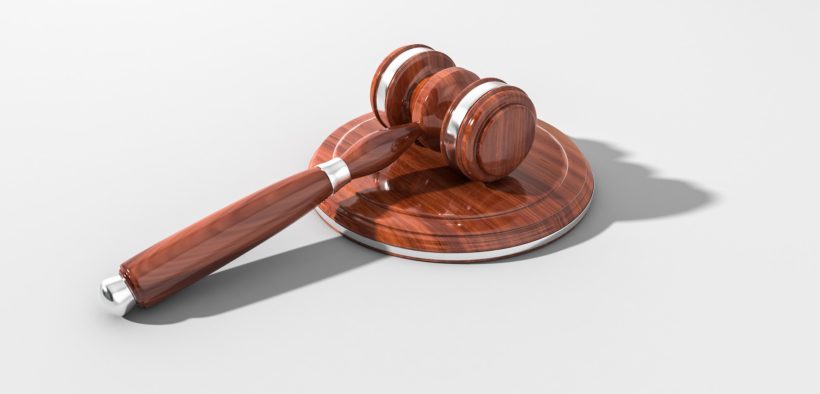The Legality of Treason
Share

Image by Arek Socha from Pixabay
Amidst the raucous and polarizing political scene in Washington, we have grown accustomed to both sides lobbing verbal bombshells at one another. As citizens look back at what has transpired over the course of the last year with the release of the Mueller Report and the impeachment of President Donald J. Trump, the word “treason” has been repeated frequently in our political discourse. Given that treason is one of the few crimes punishable by death, it is important to examine its legal implications. This article does not intend to critique any actions President Trump has taken over his presidency, but merely serves to explain why the charge of “treason” levied either by him or against him has no legal basis.
Article 3, Section III of the United States Constitution defines treason as the following: “Treason against the United States, shall consist only in levying War against them, or in adhering to their Enemies, giving them Aid and Comfort. No Person shall be convicted of Treason unless on the Testimony of two Witnesses to the same overt Act, or on Confession in open Court. The Congress shall have Power to declare the Punishment of Treason, but no Attainder of Treason shall work Corruption of Blood, or Forfeiture except during the Life of the Person attained.” U.S. Code §2381 lists out punishments of treason which include: the forfeiture of public office, imprisonment for a minimum of five years, a fine of a minimum $10,000, and the death penalty for the most heinous of cases.
When the founders ratified the constitution in 1787, America was a far different place than it is today. The new nation was facing its share of challenges, struggling to find a means of self-governance that worked after the abject failure of the Articles of Confederation. Amidst the fragile young republic, “treason” was written into the United States Constitution, the only crime which is explicitly defined in the document. The founders were concerned about ensuring Americans remained loyal to the young nation, but even more so about the prospects of the treason charge being used as a way to prosecute political opponents, if not properly defined. The founders took every precaution to ensure no tyrant would arise in the new republic, evidenced famously by George Washington rejecting the prospects of becoming “King” of the United States.
To better understand what constitutes treason, let’s examine some pertinent cases from our nation’s history. This is key to understanding if we can apply the term to our current political climate.
The infamous Benedict Arnold, a name synonymous with treason, is a prime example to examine when unpacking this term. Arnold proposed to hand over West Point and the troops in his battalion in exchange for a high-ranking position in Great Britain’s Royal army during the Revolutionary War. While this act occurred before the ratification of the United States Constitution in 1787, Arnold’s effective aiding and abetting of the enemy fits within the legal definition of treason.
During the Civil War, William Mumford of New Orleans was angered by the presence of an American flag flown in place of a Confederate one at the local U.S. mint building in wake of a Union military victory. Enraged, he scaled the pole and removed the flag. Mumford, still recognized as an American citizen, was charged for abandoning his allegiances to the United States. Under legal statute, you can constitute Mumford’s actions as “levying war against [the Union]” which is within the legal definition of treason.
Herbert Haupt, a Nazi spy, infiltrated the United States in 1942. Hauput was caught hiding with his parents, Max and Eva, in Chicago while America was escalating their fight against Axis powers in World War Two. The law makes no exceptions for family ties. The “treason” charge leveled by Herbert’s parents worked its way up to the U.S. Supreme Court. Haupt v. United States (1947) ruled that there was enough evidence to conclude his parents committed treason by housing him.
The last person the United States successfully convicted of treason was Tomoya Kawakita in 1952. Kawakita was a dual citizen, holding both American and Japanese citizenship. He was accused in 1946 of aiding the torture of Americans within Japanese POW camps during the war. The Supreme Court ruled 4-3 in Kawakita v. United States (1952) that he could be charged with treason, even if such acts occurred on foreign soil. They argued that he was an American citizen at the time when he committed these acts, allowing for the treason charge to stand.
While these examples demonstrate the way the term has been used in the past, let’s examine what context it is being used in today.
On September 30, 2019, President Donald J. Trump accused Congressman Adam Schiff (D-CA) of committing an act of treason during a congressional hearing over his phone call with Ukrainian President Volodymyr Zelensky. The phone call in question is where Trump allegedly threatened to withhold crucial military aid to Ukraine if they did not dig up dirt on former Vice President Joe Biden. The President tweeted: “Rep. Adam Schiff illegally made up a FAKE & terrible statement, pretended it to be mine as the most important part of my call to the Ukrainian President, and read it aloud to Congress and the American people. It bore NO relationship to what I said on the call. Arrest for Treason?” Pressed by a reporter on what he meant by that charge, Trump doubled down. He said, “Frankly, they should look at him for treason because he is making up the words of the president of the United States – not only words, but the meaning. And it’s a disgrace…” Referring back to the legal definition of treason, the remarks Adam Schiff made during that congressional hearing would at worst be considered an act of “perjury.” This would only be the case if he was under oath.
President Trump’s re-election team has pushed Facebook ads which have argued that they are leveling “treason” accusations as part of their push to impeach Trump. For clarification, the House of Representatives voted to impeach President Donald J. Trump on two counts: abuse of power and obstruction of justice. Treason was not a formal charge levied against the president at any point during the proceedings. These accusations of treason were purely political, with the ad implying that the action of impeaching a sitting president is treasonous in and of itself.
It is not only the President who has utilized the word “treason” without being mindful of the actual legal definition of the word. Governor Bill Weld, waging a fledgling Republican primary challenge to the president labeled his alleged “quid pro quo” with the Ukrainian government as a treasonous act. In a CNN interview, Weld bluntly stated: “The penalty for treason under the US code is death. That’s the only penalty.” While Weld correctly stated the punishment for treason, his accusation along with many others levied on Twitter show that there are broad misconceptions of what constitutes a treasonous action.
A poll conducted by Public Policy Polling in February of 2018 puts into context how people fail to understand the true definition of the word “treason.” Twenty percent of respondents “think members of Congress who decline to stand and applaud for Donald Trump are committing treason.” Voicing dissent against any elected official, or person for that matter is protected under one’s first amendment right to free speech, petition, and assembly. The notion that anyone speaking out against an elected leader constitutes a treasonous act is bizarre and would have the founding fathers rolling over in their graves. It goes against the very reason why the definition of treason was adopted: to prevent the cavalier use of the term by a rogue executive obsessed with prosecuting their political opponents.
Whether you are the President of the United States or a concerned citizen tweeting about current events, it is important to understand the legal implications of the word “treason” and what actually merits such an accusation.


Want to get involved?
Connect with us! Connect with us!